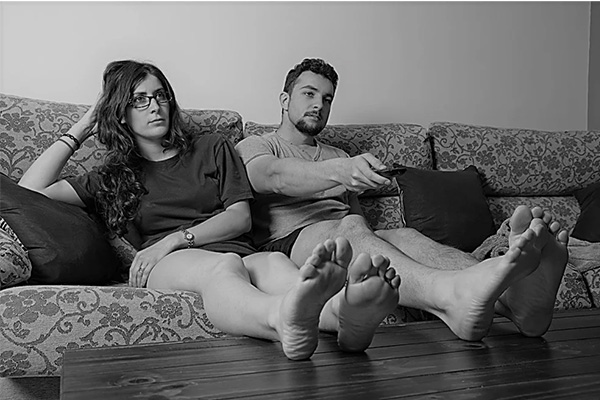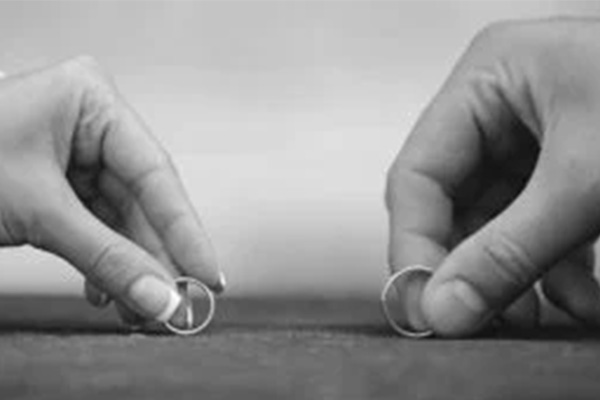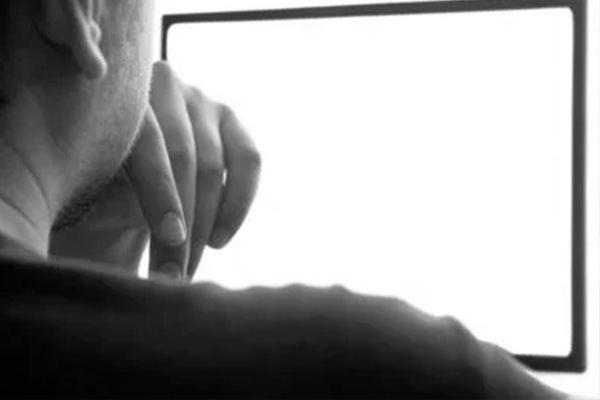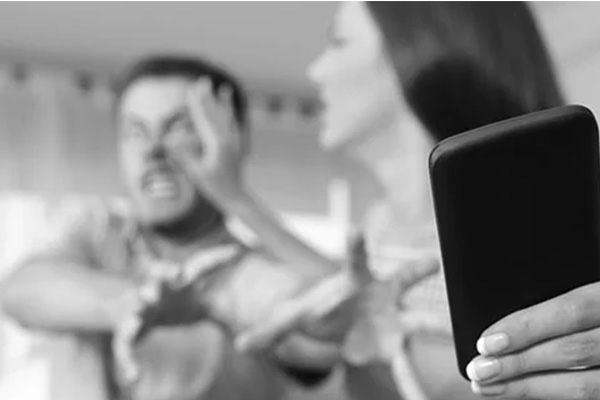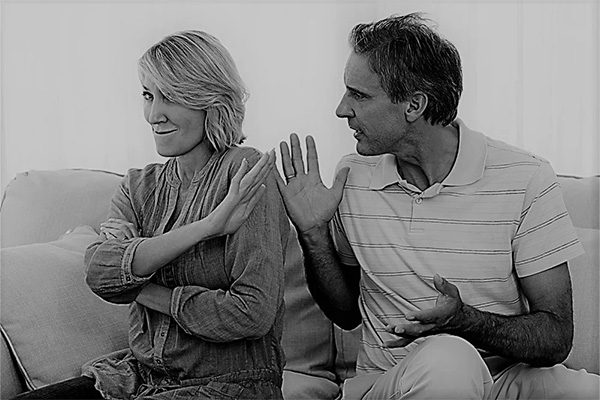The finger of blame
When couples seek relationship help Farnham they are often complaining about how their partner treats them. They firmly believe it’s them that is stopping them from being happy by being ‘thoughtless’ ‘critical’ ‘irresponsible’ or ‘complacent’. Resulting in the belief they are forced to take control, demand attention and stand up for themselves.
They often protest about the unpleasant interactions that result from their partner’s behaviour with statements such as:-
“He is always talking down to me or corrects everything I do! He tried to tell me how to cook the dinner the other day, when he doesn’t even know how to cook!”
“She never has time for me, she is always on her phone. When I try and talk to her she doesn’t give me her full attention”
Whilst some complaints may be valid, people often fail to see the part they play in the dynamic of the relationship. Instead they regard themselves as victims, as if their actions are controlled by their partner’s behaviour. When talking about their own behaviour within the relationship, most people tend to feel justified in identifying their actions as a reaction to their partners.
“His tone was so patronising and it made me feel really angry. Therefore I pushed the frying pan into his hands and said ‘Why don’t you cook it yourself seeing as you’re such an expert!”
“I was sick of being ignored, so I haven’t spoken to her for a few days so she can see how it feels for a change.”
You control you
We tend to be far more emotionally reactive in our romantic relationships. So we can become easily triggered when our partner behaves in a way that we find unacceptable. It might only take a certain tone or facial expression to set us off.
One of the most helpful things to remember during these moments is to not hone in on your partner and start listing in our head every mistake they are making. Instead, you should switch your focus to you and ask yourself “How do I want to act in this situation? How I want to come across so I feel happy with myself afterwards?”
Although it might not feel like it. We are all capable of taking responsibility for our own behaviour. Rather than believing our partner’s actions left us no other choice than to respond the way we did. Our own behaviour is not based on someone else’s actions. We always have the power to decide who we want to be and how we want to react. No one else controls us, unless we allow it. When we hand over control to another person, it results in us acting in a way that we don’t like.
Whilst we can’t always choose how we feel, we can choose how we respond in terms of our behaviour. Even if we feel hurt or angry by something our partner has said or done, no one can make us be spiteful, defensive or victimised. Only we choose how we react.
Stop point scoring
When we engage in tit for tat such as “he said this, so I did that” we give up our own personal standards. We also reduce our chances of getting the respectful, caring responses from our partner. When we get triggered emotionally, we take our eye off the ball and forget what our ultimate goal is. We respond in ways that create more distance with the people we really want to be close to.
It’s so important to pause before we engage in a heated interaction with someone close to us. Because, our emotional reactions are often based on or are exacerbated by triggers from our past. So this makes it more difficult to be objective in that moment. For example, our partner may have spoken to us in a condescending way on previous occasions, which is understandably irritating. But that doesn’t mean it is actually happening now.
The role you both play
Here is an example of an argument a couple had whilst seeking relationship help Farnham whilst driving to their session. The wife said “take a left here” to which her husband replied “no it’s not, your rubbish with directions”. She responded “OK Mr know it all, you find it then!” This resulted in her husband shouting “why do you have to be so sensitive to everything I say, you are crazy!” Neither of them spoke for the rest of the journey.
When they arrived, the wife was upset, complaining that he always gets angry so she feels like she has to walk on eggshells. Even if she apologises he still continues to sulk for hours. Her husband of course had a different interpretation of the situation, arguing that she “always tells him what to do and is too sensitive”.
Take responsibility
Although both of them were reacting to a situation in the present, they were also unintentionally triggering old feelings in each other. His wife giving him directions ignited feelings from the past he had experienced with a controlling, critical mother. For her, his sulking triggered the negative feelings she experienced when her father got angry with her mother and then not speak to her for days.
Our interactions with our partner can be complicated. Because sometimes we have a tendency to place distorted meaning into each other’s words and behaviour. This is often because we don’t respond to what the other person is actually saying or doing. But by what we are telling ourselves or the meaning we attach to what they are saying or doing. We often experience our lives through a filter of our own histories, insecurities, worries, expectations or inner critic.
Putting our own interpretation or projection onto the world around us can result in as reacting irrationally. Couples, in particular, have a tendency to do this. In relationships, we can become sensitive to each other’s comments or actions and we’re ready to interpret them through the filter of our critical inner voice.
Our relationship counsellors understand, things do get said or done that upset the other person. This is usually unintentionally. However, even if we’re right. we still have control over how we react to it. When we act poorly or angrily in the way we respond and always end up feeling bad about ourselves and the other person. Then we rarely get what we want.
We are all capable of taking control of our responses, however difficult it might be or how ‘wronged’ we might feel. We can change the dynamic of the relationship by taking responsibility for our half of the interaction.
Relationship Help Farnham – Tips
- Don’t allow yourself to be victim and become reactive or defensive. Trying to win an argument with force or being manipulative never gets us what we really want, even if these strategies lead to temporary relief. We should stay true to how we want to be, because it’s more likely to have a long-term positive effect on our relationships and our sense of self.
- Take responsibility for your interpretation of a situation. Are you reacting to fact or feeling in any given situation that evokes a negative emotion in you?
- Stop, think and take a breath. How do you want to react? When our reactions are driven by emotion we end up saying things we don’t necessarily mean.
Further considerations…
- Think about the bigger picture and what you have got to lose. It might feel good to try to win an argument but not if we lose the war. If your goal is to abe close to your partner, then what’s the point of the victory? Keeping the image of who we want to be and our relationship goals in the forefront of our mind can help.
- Take time to get to know yourself and your own triggers. We may feel insecure when ignored because our parents used the silent treatment to punish us. Maybe we’re sensitive to being told what to do because we had an intrusive or critical parent. If we have an awareness of ourselves and what riles us, we can be aware of the scenarios that are likely to trigger them. For example, if we learn to recognise that our partner ‘asking’ us to help around the house more isn’t a criticism that you might interpret as being ‘told what to do’ – that is our interpretation.
- Be honest with your communication! Conflict is bound to happen in any relationship. It isn’t about not having point of view or not saying what you think or feel. It’s about taking responsibility for how we are say things. We can express how we feel without attributing blame to the other person. Saying ‘I feel critiscised when you asked me to do more around the house I wonder if you think I’m lazy?’ Dealing with the situation in this way is much more likely to promote a positive, reassuring response from your partner. Because you have asked for fact, without pointing the finger based on your interpretation.
- Being open, honest and vulnerable creates an environment where the other person feels comfortable to do the same.
Professional relationship help
Would like to understand more about the role you both play in your relationship? And would like to some relationship help Farnham. Then please us at Relationship Counselling Surrey today. Request an appointment



